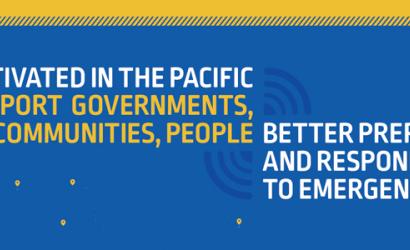Marshall Islands (RMI)
The Republic of the Marshall Islands (RMI), a low-lying atoll nation in the central Pacific, faces existential threats from climate change. Accelerating sea-level rise is causing frequent tidal flooding, coastal erosion, and saltwater contamination of freshwater lenses, jeopardizing food and water security, infrastructure, and public health. Coral reef degradation and ocean warming are disrupting fisheries and coastal protection, while rising temperatures and stronger storms increase health risks and damage homes and schools.
To confront these challenges, RMI adopted its National Adaptation Plan (NAP) in October 2023, developed with support from the World Bank under the Pacific Resilience Program II (PREP II). The NAP outlines a long-term resilience pathway through 2150, integrating climate adaptation into national policies and development goals. It emphasizes elevating infrastructure, protecting freshwater resources, and strengthening community-based planning. The plan was showcased at COP28 and is recognized globally as a model for inclusive, gender-sensitive, and locally driven climate action.
Telecommunications in RMI blend urban 2G/4G LTE mobile networks in urban centers like Majuro and Ebeye, with HF/VHF radio systems in outer atolls. The PREP II project is expanding emergency radio network, aiming to connect all inhabited islands by the end of 2025. This includes upgraded HF/VHF systems and early warning capabilities critical for disaster response, education, and health services. RMI’s internet backbone relies on the HANTRU-1 submarine cable, with redundancy planned through the East Micronesia Cable and Central Pacific Cable projects. In 2022, the government liberalized the telecom sector, ending the monopoly of the National Telecommunications Authority (NTA). Starlink was approved and achieved nationwide availability by mid-2025, offering speeds above 50 Mbps. By January 2025, 66 percent of the population are internet users, and 107 percent mobile penetration has been recorded, indicating multiple SIM ownership.

